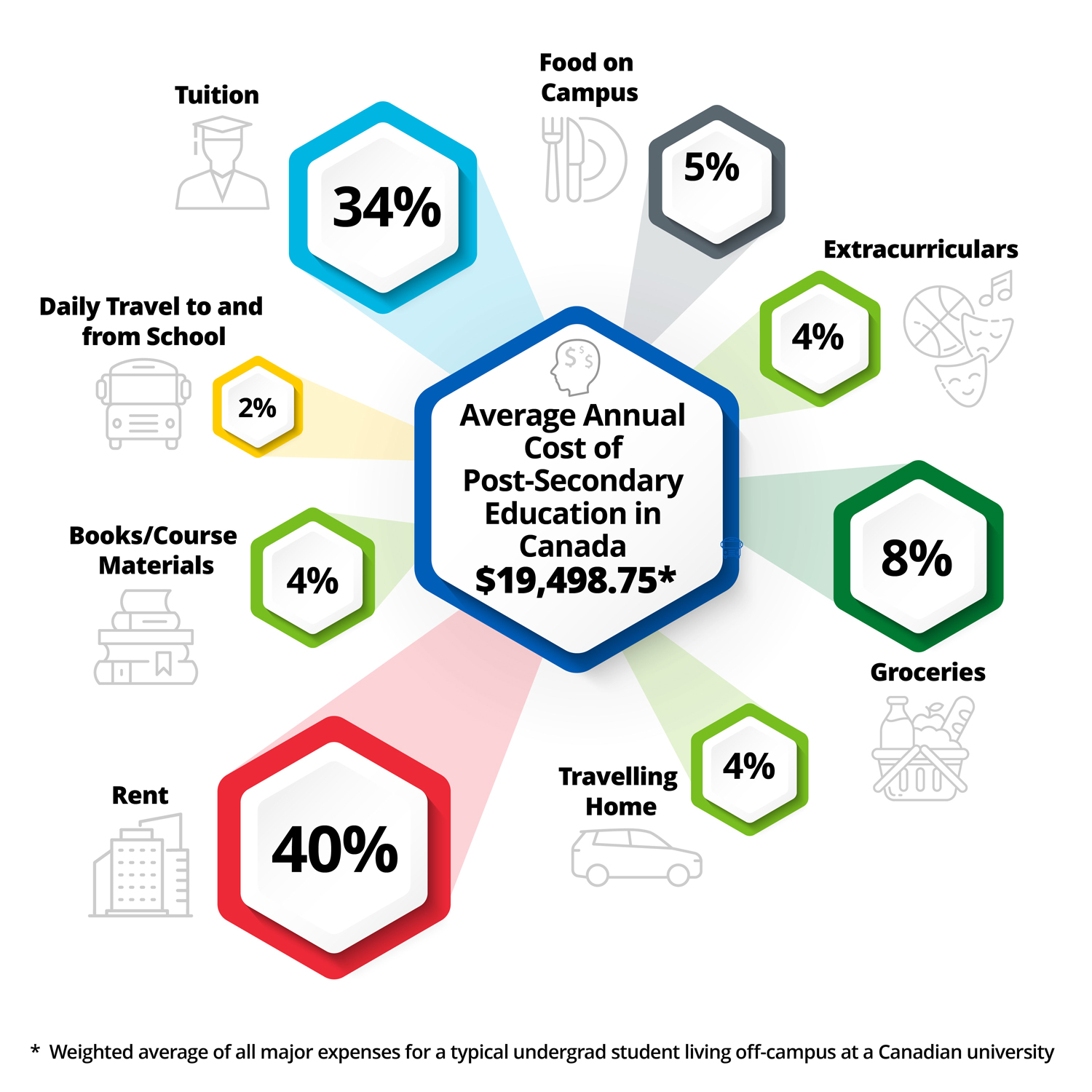Post-secondary education will present a wide range of costs for students - some which can be surprising! You will need to consider and budget for the following expenses:
-
 Tuition and additional fees from the post-secondary institution
Tuition and additional fees from the post-secondary institution - Housing (residence fee or rent) and other household items (furniture, small appliances, etc.)
- Monthly bills (internet, cell phone, utilities, etc.)
- Food (meal plan and/or groceries)
- Resources needed for academic learning (books, program sup
- plies and materials, computer and other technology)
- Transportation and travel expenses (public transportation, vehicle, insurance, gas, parking fees, etc.)
- Personal items (clothing, personal hygiene items, gym membership. etc.)
- ‘Leisure’ money (social events and outings, extracurricular activities and hobbies, etc.)
The average annual cost of university tuition in Ontario is approximately $8,000 as compared to $2,400 for a college diploma and $6,100 for a college degree. Collaborative degree programs (between a college and a university) typically cost about $5,000 per year. A typical apprenticeship program may cost approximately $1,500 but apprenticeship grants and incentives have the potential to absorb much of those costs.
With so many costs to consider, careful financial planning is key to ensuring that students and families feel confident and comfortable managing the costs of their post-secondary education.
With so many expenses, how can you effectively manage the costs of your post-secondary education? Learn more
Explore - HDSB Guide to Post Secondary